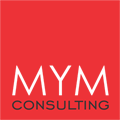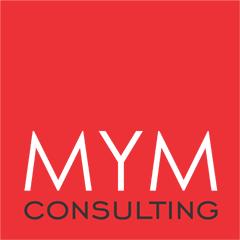The benefits that help attract new talent, drive staff performance and increase loyalty change as the workplace continues to evolve. HR teams need to recognize and act on these trends and make sure that there is effective communication both internally and externally.
One of the most significant recent changes revolves around the workplace becoming more connected, team-centric and agile, whilst the old formal hierarchies are becoming more and more redundant.
According to Deloitte and Reventure, the following trends are what Human Resources teams will need to consider over the course of 2018/2019:
Harmonic and Cohesive Teams
The concept of executives working together and heading up teams to work in a harmonic manner has been deemed the Symphonic C-suite by Deloitte. As digital disruption continues, organizations have become more team-centric, networked, and agile. This means that the C suite need to break down functional hierarchies and help build a more networked, team-based organization. In this new construct, C-suite executives combine business unit and functional ownership with cross-functional teaming to run the organization as an agile network.
Technology Intelligence and Personalisation
Employees are more engaged and productive when they can configure their own settings, features, and functions. Companies should have more customizable software, which can be personalised for the business, the brand, and employees. Additionally, the implementation of new technologies helps workers be more accepting of change and enhancement. With robotics and AI automation soon to be more common in the workplace, workers want to feel some security in their jobs so leading companies are finding ways to train and help their workforce work alongside this technology.
Recognition and Job Purpose
Employees want recognition, but not just in monetary or material terms. In fact, people are more productive simply from being recognised as essential to their workplace. While there is a time and place for monetary and reward recognition, appreciation from their managers, supervisors, and executives has a genuine impact on employee motivation.
The Work-Life Balance Effect
Work-life balance is more than simply getting time off work or working fewer hours. It is about flexibility between the office, home, and culture of a workplace. Flexible working hours for remote workers allows them to spend time with their families without sacrificing their income. Likewise, employees who can choose to work at home some days paves the way for more productive and motivated staff. Companies do need to be careful though that employees are not continually affixed to the office via their devices.
Enhanced Workplace Culture
In recent years, Australian companies have been paying more attention to and addressing the issues around workplace culture. Many improvements have been seen in the areas of inclusiveness, diversity, income inequality and other social matters. This focus on culture has had a big bearing on companies strategy and corporate identity.
Creating Experiences over Careers
21st Century careers are more than just a job, they are experiences that allow employees to explore new work roles and consistently evolve in the work environment. Oddly, in spite of that, as traditional career models are becoming antiquated in the new workplace, over half of businesses still offer no skill-building programs.
Health and Wellbeing
Australian employers are becoming more likely to invest in extensive health and wellness programs. These programs go beyond any insurance policies. The programs encompass a broad range of programs for financial, spiritual, mental, and physical health. Some of these programs include life balance, financial fitness, and mindfulness. They are changing the face of the workforce for the better.
The best way to start making changes in the workplace is to get to know employees better and find out what really matters to them. The more you know about them, the easier these HR trends in employee benefits can be implemented.
Essentially, employees prefer their workplace to represent their own values and culture. They want to be proud of their employer and feel appreciated for what they contribute. The modern career is a balance between professional and personal life and employees want to know that this understand and taken into consideration by their employer.
Are there any new benefits that you have not come across before being rolled out in your business?








